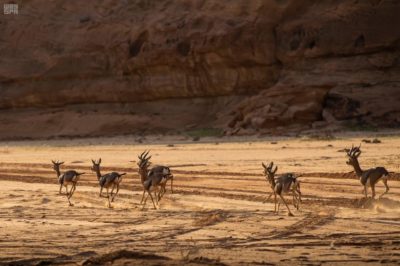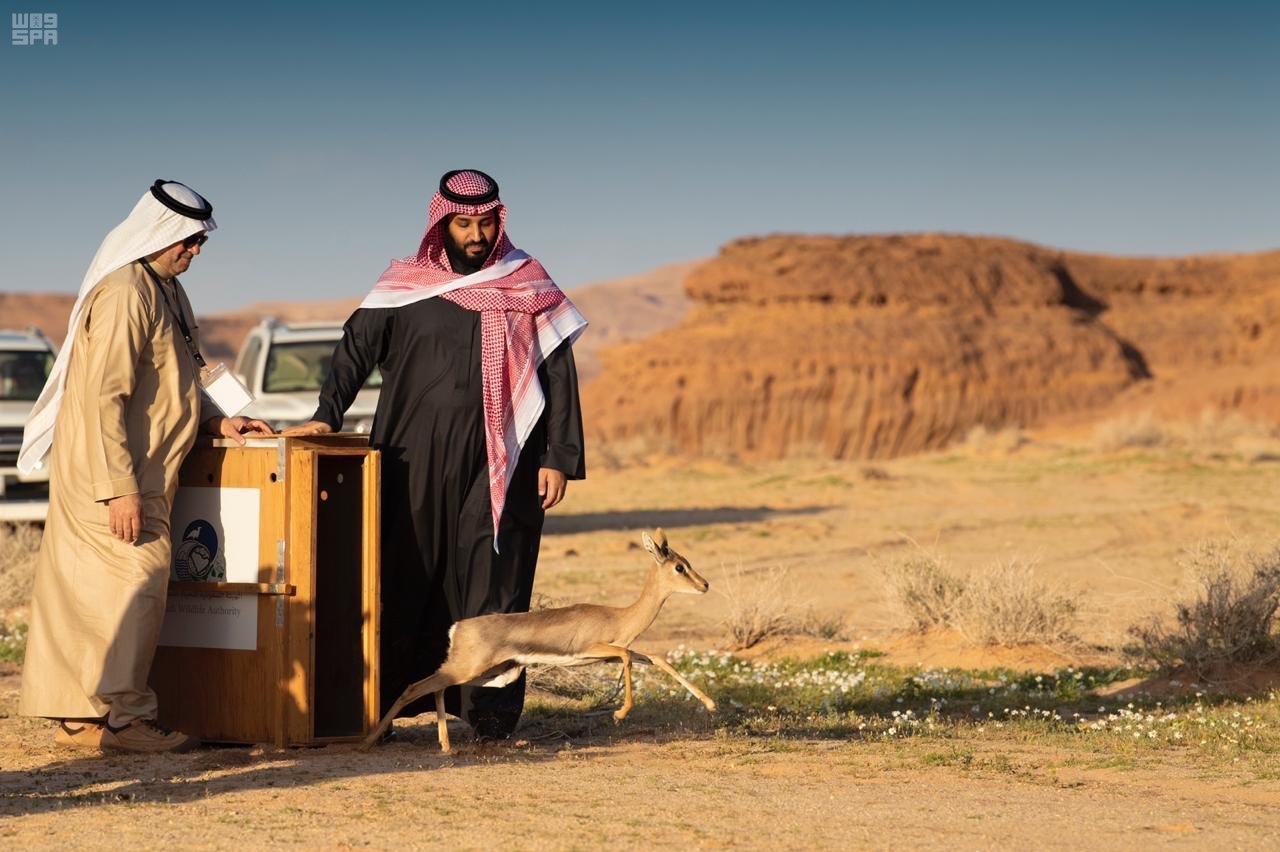Saudi Arabia took a first and important step in its longterm conservation plans for the Al-Ula area this week by welcoming a newborn Arabian gazelle, which took its first steps under the watchful eye of rangers from Al Ula’s Sharaan Nature Reserve, according to a report in The National.
The birth of the gazelle is a milestone in creating a thriving gazelle population for the area with the ultimate goal of re-creating a rebirth of Sharaan as “a complete, fully-functioning ecosystem as it once was hundreds of years ago,” Frank Rietkerk, captive breeding manager at the Royal Commission for Al Ula, said, according to a report in The National.

Gazelles in Saudi Arabia. A newborn Arabian gazelle took its first steps under the watchful eye of rangers from Al Ula’s Sharaan Nature Reserve this week.
After decades of overgrazing and other human activity destabilized the natural environment around Al-Ula, the Saudi government, taking the long view, launched a plan of re-establishing the animal population and natural plant habitat as it once was for centuries.
“We’re still in the first stages, but we’ve had some crucial early successes, this new generation of gazelles, of course, but also re-establishing the vegetation they need to survive,” Rietkerk said.
Once successful, after the gazelle population is allowed to thrive again, the aim is to work toward building a fully functioning ecosystem, eventually introducing the endangered Arabian leopard in the area. Experts hired by Saudi authorities are hoping to be able to reintroduce the Arabian leopard on a five-to-ten year timescale.
In February 2019, Saudi Arabia’s Crown Prince Mohammed bin Salman launched a slew of tourism projects in Al-Ula, Saudi Arabia, including a resort designed by a renowned French architect Jean Nouvel, to go along with the Sharaan nature reserve.
Al-Ula, which is home to natural sites like Elephant Rock and the archaeological site of Madain Saleh, was historically located on the incense route. The city is in the Medina Region of Saudi Arabia and will offer a natural desert-like experience to tourists.
While preserving the natural beauty and restoring the environment surrounding Al-Ula are both priorities, so, too, is understanding more about the historic sites. In May, the Kingdom kicked off an international five-year long archaeological mission to excavate key sites at Al-Ula in the Kingdom, the ancient heritage site of the Dadan and Lihyan kingdoms.









